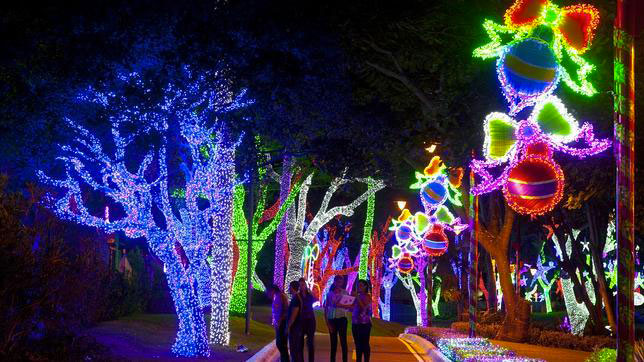
If you’re planning your New Year and Christmas celebrations, here are the rules you need to know about.
For months, the numbers of coronavirus cases in Colombia had seemed to have hit a status quo – they weren’t decreasing, but they weren’t increasing dramatically either. This week, no doubt post velitas and as novena celebrations take place throughout the country, we’ve seen a spike in numbers. This Friday even saw a record number of confirmed cases per day in Colombia, however, the testing capacity has also increased substantially since quarantine ended in August.
Latest: Further coronavirus restrictions for Bogotá over Christmas
The issue with novenas is ninefold. Whole families – including elderly – want to gather for the traditional prayers, food, and celebration. And normally, each of the nine nights of celebration takes place at a different house. Often with different people.
As a result, many local authorities have announced restrictions to try to slow the spread and reduce intensive care occupancy. If you’ve been out on the streets in recent days, you will probably have noticed the increase of people doing their Christmas shopping, and hospitals are already feeling the pressure.
Rules and recommendations
Here are the COVID Christmas restrictions in Colombia so far:
Bogotá: Mayor Claudia López has asked people to celebrate novenas virtually and suggested that those who want to get together in person on the 24th should isolate for eight days beforehand.
Celebrations will be restricted close family only, with no more than 10 allowed. Mask wearing and distancing remains obligatory. And bars and restaurants cannot sell alcohol after 10pm.
Medellín: With intensive care occupancy at over 80%, Mayor Daniel Quintero announced this week that the city of eternal spring will be shut down on December 24, 25, 26 and again on December 31, January 1 and 2. He said the curfew (toque de queda) would likely only be at night time and could start earlier than the 24th and promised more details on Monday.
Cali: With intensive care occupancy over 90%, Cali’s mayor has already reintroduced pico y cédula in the salsa capital. There’s also a curfew in place between 11pm and 5am every night until December 23 to try to get the numbers back under control.
Cartagena: Normally famous for its festive street parties, this year there will be no public gatherings in the walled city. Gatherings can’t exceed 10 people. Visiting the beach and swimming in the sea is restricted. Eleven neighbourhoods with particularly high numbers of cases already have curfews and alcohol bans in place.
Manizales: Public parties are banned in Manizales, along with the traditional public slaughter of pigs and subsequent lechona-making. There’ll be a curfew on the 25th and January 1st between 1am and 10am. (That’s effectively the night of Christmas Eve and New Year’s Eve.)
What to expect
If we learned one thing during Colombia’s long lockdown, it was to be prepared for sudden changes. So don’t be surprised if, for example, Bogotá suddenly bans alcohol sales or implements a curfew around December 24 or 31. López has already warned that stricter measures will be put in place if cases continue to rise.
Stock up on essentials now and try to keep any plans you do make flexible. Obviously, if you have symptoms or have contact with someone who’s tested positive, stay home. With a vaccine in sight, nobody wants COVID for Christmas.





